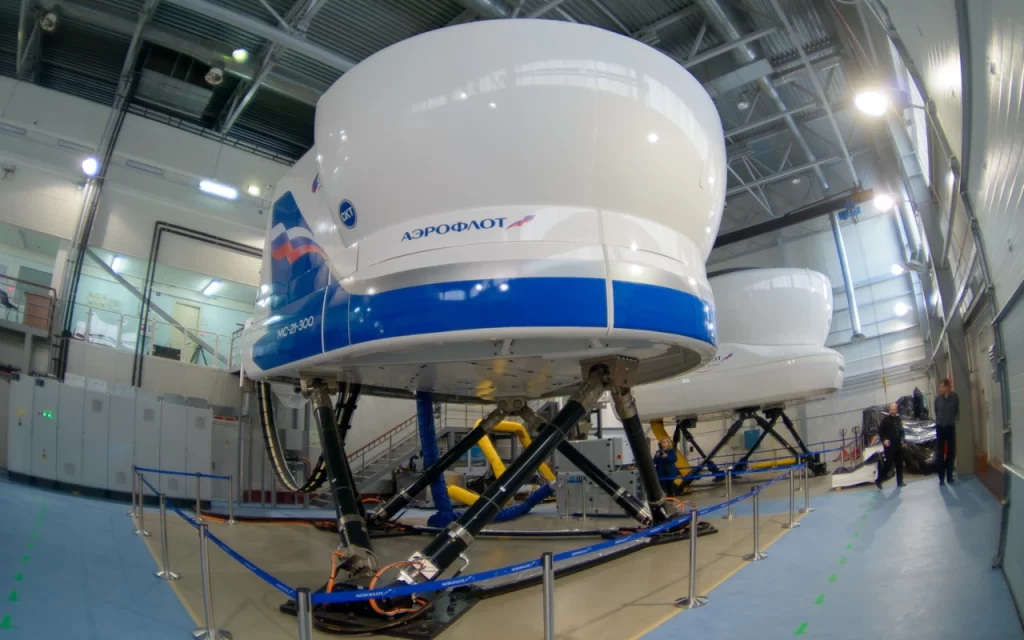The renewal of Aeroflot’s aircraft fleet with domestically produced equipment is a strategic direction for the airline’s development. The MC-21 program is a key element of this renewal, and the airline anticipates receiving more than 100 aircraft of this type in the coming years. Aeroflot CEO Sergey Alexandrovsky stated this in an interview with the “Russia 24” TV channel.
Rossiya Airlines, part of the Aeroflot Group, will completely renew its fleet of aircraft in the coming years, switching exclusively to domestic MC-21s, as per Sergei Aleksandrovsky. Currently, Rossiya uses both medium-haul and long-haul aircraft, including business-class models. However, in the future, the airline plans to focus only on the MC-21 in economy and comfort configurations.
“Our goal is to introduce new domestic MC-21 aircraft into the group’s fleet. By 2030, we plan to receive more than 100 such aircraft, and active preparations for their operation are already underway,” said Alexandrovsky, speaking about the company’s plans.
Overall, the group’s development strategy for the period after 2030 envisions the delivery of 339 domestic aircraft, including 210 MC-21s, 89 SJ-100s, and 40 Tu-214s. The first steps in this direction have already been taken: in May 2024, 9 Sukhoi Superjet 100s were re-equipped, removing business class and increasing the number of economy class seats to 100 on each plane.
These plans are outlined in the agreement between Aeroflot and the United Aircraft Corporation, which aims to replace foreign aircraft being phased out of the group’s fleet with Russian-made aircraft. The group’s 16.8% growth in passenger traffic in 2024 and a 42.7% market share reflect the company’s stability and the need to modernize the fleet with domestic aircraft.

Sergey Alexandrovsky also noted strong pilot interest in retraining for the MC-21, which indicates a positive perception of the new aircraft and the crew’s readiness to master it. MC-21 pilot training has already begun using advanced simulators developed on behalf of the Irkut Corporation (now PJSC Yakovlev). The use of simulators helps reduce training time and improves training quality. Aeroflot’s training center is equipped with the first MC-21 simulator, which is continuously upgraded based on the results of flight testing.
At the same time, technical personnel are also being trained to service the MC-21. Training programs include theoretical and practical modules, as well as mandatory certification. Special emphasis is placed on mastering new systems and equipment to ensure the reliable operation of the new Russian aircraft. A qualified technical workforce will be key to the smooth operation of the fleet and minimizing downtime as new aircraft types enter service.
The company’s infrastructure changes are in line with the scale of the fleet renewal program. Aeroflot plans to build additional hangars to allow simultaneous servicing of up to 10 MC-21 aircraft. Currently, the company’s hangar space exceeds 33,000 square meters, enabling the simultaneous servicing of three wide-body and 18 narrow-body aircraft. The infrastructure expansion aims to ensure a high level of technical maintenance and reduce aircraft downtime, said Alexandrovsky.
“There are also plans to expand the hangar areas, taking into account the expansion of the fleet and the arrival of domestic MC-21s. We plan to build up to four additional hangars, which will allow us to service up to 10 MC-21 aircraft at a time,” Alexandrovsky said.
Aeroflot has historically maintained a cautiously optimistic stance toward the MC-21 aircraft; however, in recent years, it has become openly prioritized and even exclusive.
Aeroflot placed the most significant order for Russian-made aircraft in its history in 2022. Nevertheless, the company’s management initiated negotiations with the UAC in 2024 to modify this agreement. CEO Sergey Alexandrovsky expressed his intention to substitute the entire order of 339 aircraft exclusively with MC-21s. The reasons for this were the delays in import substitution, as well as the initiative to unify the fleet and enhance operational efficiency.
Aeroflot’s CEO emphasizes that the company is not afraid of possible “teething problems” with the new aircraft, considering them a natural stage in the introduction of domestic technology. In an interview, Alexandrovsky noted, “We need an efficient aircraft, comfortable for passengers and efficient for the carrier because we will have to compete with this aircraft, including in international markets.” This means that the MC-21 is being positioned as the main tool for competing with such global models as the Airbus A320 and Boeing 737.
“The fact that we’ll face such issues is a natural situation. Of course, that means our proposal will require further analysis — more thorough in terms of delivery rhythm, specifications, and so on. But we see this as an opportunity to improve the aircraft’s performance characteristics,” Aleksandrovsky explained.
He also added that the airline does not intend to receive all the new airliners at once. Instead, the fleet will be expanded gradually.
Certification tests of the MS-21 are currently being completed, and serial production is scheduled to begin in 2026. Experts note that the transition to a single-type fleet will simplify logistics and reduce costs, and the elimination of business class will make transportation more accessible to mass passengers.
Official Website of Youtube Channel – Altitude Addicts

